
Newcastle upon Tyne: The Heartbeat of North-East England
Newcastle upon Tyne, often simply called Newcastle, is a vibrant city in the northeast of England. Known for its rich industrial history, it now shines as a modern hub of culture and innovation. The River Tyne flows through the city, offering picturesque views and a series of iconic bridges, including the famous Tyne Bridge and the Millennium Bridge which illuminates the night with stunning light displays. History buffs will delight in exploring Newcastle Castle, a medieval fortress that gave the city its name. For a deeper dive into the past, the Great North Museum is a must-visit, housing an array of artifacts from the region's Roman history to natural history exhibits. The city is also home to the beautiful St. Nicholas' Cathedral, a testament to its rich architectural heritage. Art and culture thrive in Newcastle. The BALTIC Centre for Contemporary Art, situated in a converted flour mill, offers rotating exhibitions of cutting-edge art. The Theatre Royal and the Sage Gateshead, just across the river, provide world-class music, theater, and performances. The vibrant Quayside area is perfect for a leisurely stroll, with its mix of modern and historic buildings, trendy bars, and cozy cafes. For those who love shopping, Eldon Square and Grainger Town offer a mix of high street brands and unique boutiques. Food lovers will find plenty to delight in, from traditional British fare at local pubs to a multitude of international cuisines. Football fans should not miss a visit to St James' Park, home to Newcastle United, where the passionate local support creates an electric atmosphere. Newcastle's nightlife is legendary. Known for its friendly locals and buzzing atmosphere, the city's pubs, bars, and clubs offer something for everyone. Whether you're looking for a quiet pint in a historic pub or a night of dancing, Newcastle will not disappoint.
Local tips in Newcastle upon Tyne
- Take a walk along the Quayside on a Sunday for the Quayside Market, featuring local crafts, food stalls, and live entertainment.
- Use the Tyne and Wear Metro for easy and affordable travel around the city and surrounding areas.
- Visit the Ouseburn Valley for a taste of Newcastle's creative scene, with its independent galleries, music venues, and quirky bars.
- Consider buying a Newcastle City Pass for discounts on top attractions and experiences.
- Try a traditional Geordie favorite, the stottie cake, available at many local bakeries and cafes.
Neighbourhoods in Newcastle upon Tyne
Newcastle upon Tyne: The Heartbeat of North-East England
Newcastle upon Tyne, often simply called Newcastle, is a vibrant city in the northeast of England. Known for its rich industrial history, it now shines as a modern hub of culture and innovation. The River Tyne flows through the city, offering picturesque views and a series of iconic bridges, including the famous Tyne Bridge and the Millennium Bridge which illuminates the night with stunning light displays. History buffs will delight in exploring Newcastle Castle, a medieval fortress that gave the city its name. For a deeper dive into the past, the Great North Museum is a must-visit, housing an array of artifacts from the region's Roman history to natural history exhibits. The city is also home to the beautiful St. Nicholas' Cathedral, a testament to its rich architectural heritage. Art and culture thrive in Newcastle. The BALTIC Centre for Contemporary Art, situated in a converted flour mill, offers rotating exhibitions of cutting-edge art. The Theatre Royal and the Sage Gateshead, just across the river, provide world-class music, theater, and performances. The vibrant Quayside area is perfect for a leisurely stroll, with its mix of modern and historic buildings, trendy bars, and cozy cafes. For those who love shopping, Eldon Square and Grainger Town offer a mix of high street brands and unique boutiques. Food lovers will find plenty to delight in, from traditional British fare at local pubs to a multitude of international cuisines. Football fans should not miss a visit to St James' Park, home to Newcastle United, where the passionate local support creates an electric atmosphere. Newcastle's nightlife is legendary. Known for its friendly locals and buzzing atmosphere, the city's pubs, bars, and clubs offer something for everyone. Whether you're looking for a quiet pint in a historic pub or a night of dancing, Newcastle will not disappoint.
When is the best time to go to Newcastle upon Tyne?
Iconic landmarks you can’t miss
Tyne Bridge
An iconic through arch bridge spanning the River Tyne, symbolising Newcastle and Gateshead’s industrial heritage and enduring spirit.
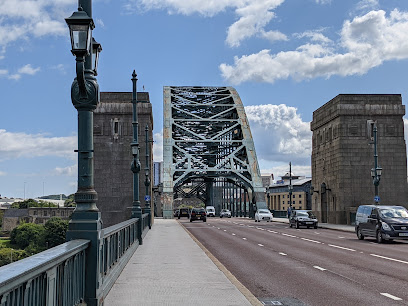
Newcastle Cathedral
Medieval beacon of light guiding nine centuries of Newcastle's spiritual and cultural heritage
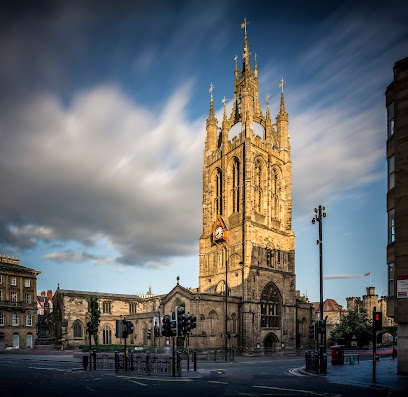
The Tower Cafe Ltd
Charming café in Newcastle’s Leazes Park, famed for vegan pizzas and a relaxed, friendly atmosphere amid scenic greenery.
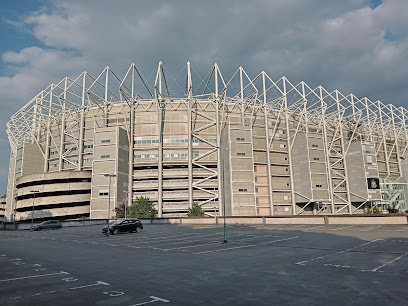
Grey's Monument
Discover Newcastle’s iconic Grey's Monument, a historic sandstone column honoring Earl Grey with panoramic city views atop its spiral staircase.
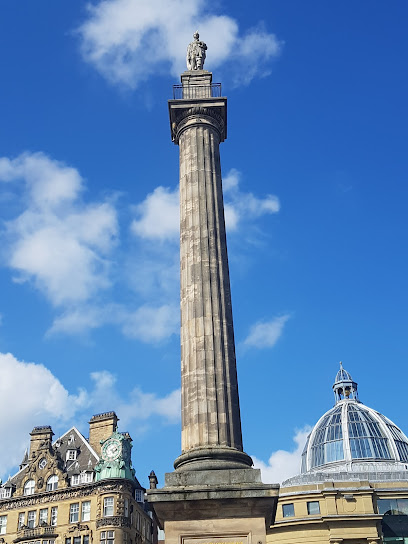
St. Mary's Cathedral
Historic Gothic Revival cathedral in Newcastle, renowned for its stunning stained glass and vibrant worship community.
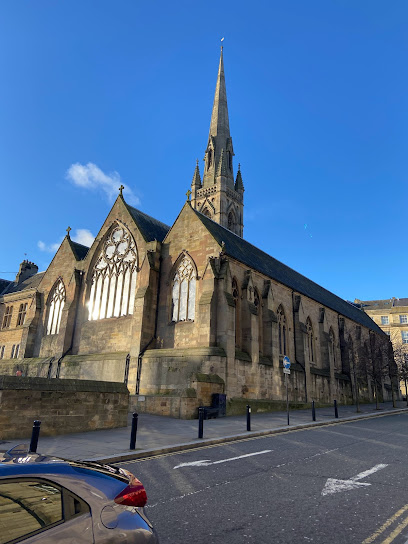
Denton Hall Turret - Hadrian's Wall
Explore Denton Hall Turret, a Roman watchtower on Hadrian’s Wall, revealing ancient frontier defense in Newcastle’s historic suburbs.
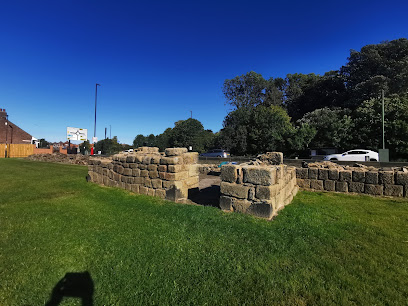
Little Buildings
An intimate live music venue in Newcastle’s Ouseburn Valley, perfect for discovering new bands and enjoying craft beers in a laid-back, buzzing atmosphere.
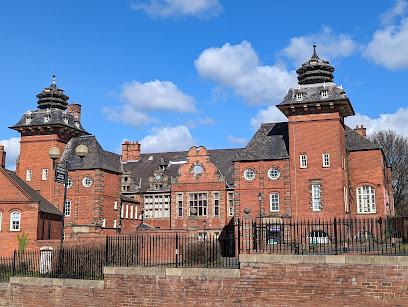
All Saints Church
England's only elliptical church, a Georgian masterpiece praised by Poet Laureate Betjeman.
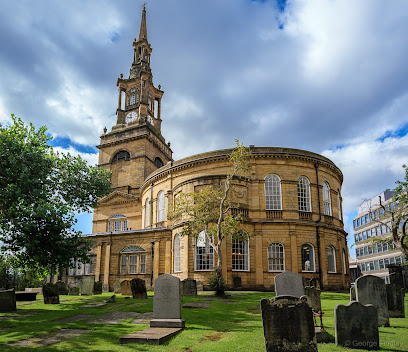
The Black Gate
Medieval fortress gateway where Newcastle's story began, now fully accessible with rich exhibitions.
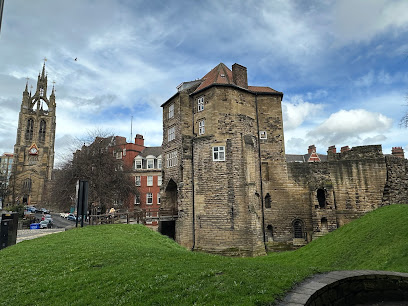
St Andrew's Church, Newcastle upon Tyne
Discover St Andrew's Church, a splendid 19th-century Gothic landmark central to Newcastle's Catholic heritage and architectural beauty.
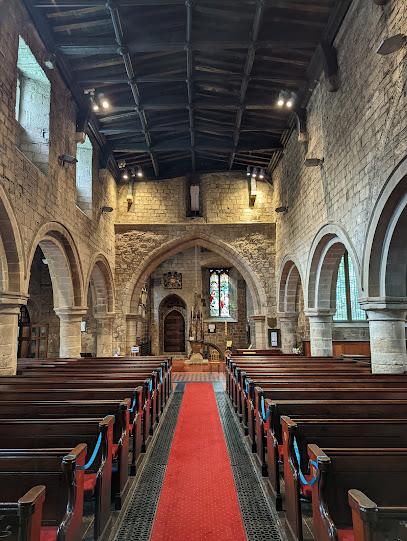
The High Level Bridge
A pioneering Victorian double-deck bridge linking Newcastle and Gateshead with stunning river views and historic engineering brilliance.
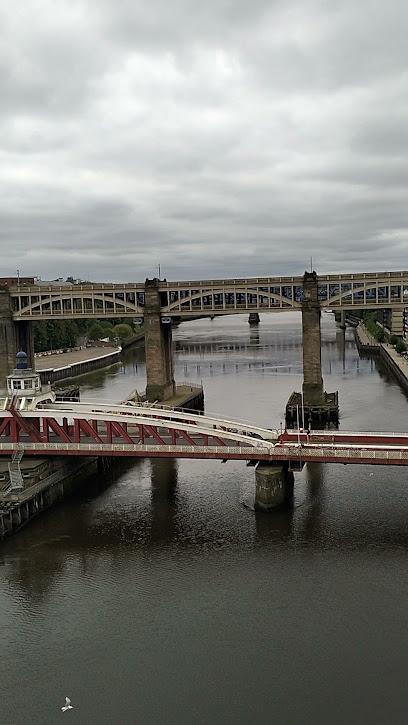
Old Library Building
A historic university building at the heart of Newcastle’s campus, now home to the School of Modern Languages and academic events.
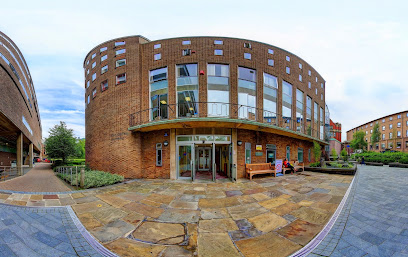
Morden Tower
A medieval drum tower turned iconic poetry venue, Morden Tower blends Newcastle’s rich history with vibrant cultural legacy.
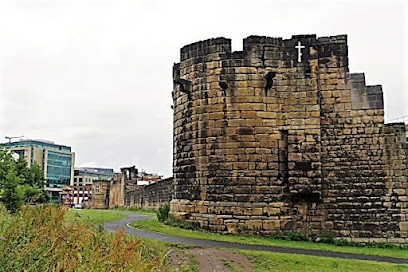
Newcastle Keep
Climb 99 steps through four centuries of medieval power and emerge onto rooftop views that define Newcastle.
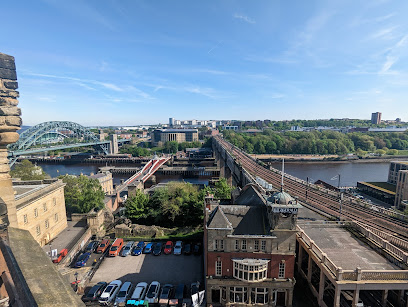
Newcastle and District War Memorial
A Portland stone tribute to courage, unveiled in 1923 and crowned by a bronze Saint George.
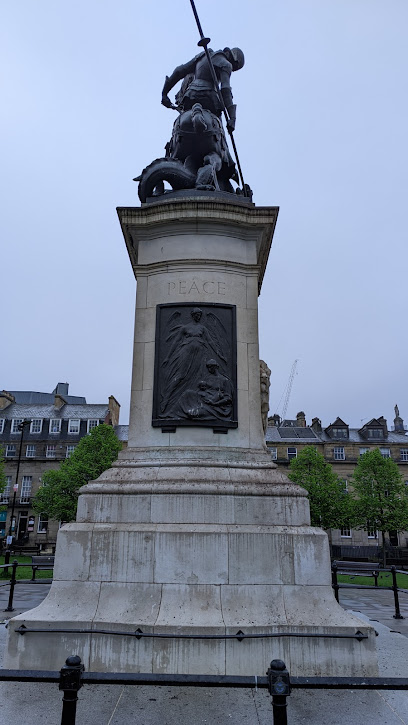
Unmissable attractions to see
Eldon Square
Newcastle’s vibrant city centre shopping and dining destination with over 140 stores and 30+ restaurants under one roof.
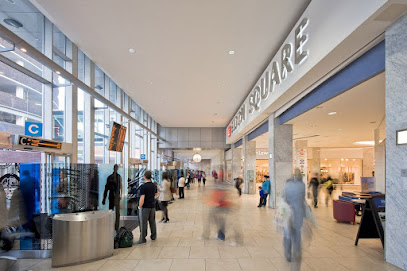
Alnwick Castle
Explore Alnwick Castle’s majestic medieval fortress, rich history, enchanting gardens, and magical Harry Potter heritage in Northumberland.
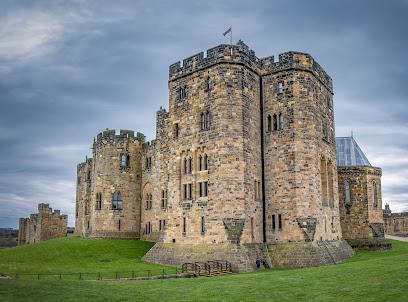
Durham Cathedral
Explore Durham Cathedral, a Norman architectural marvel and sacred pilgrimage site with breathtaking views and rich medieval heritage.
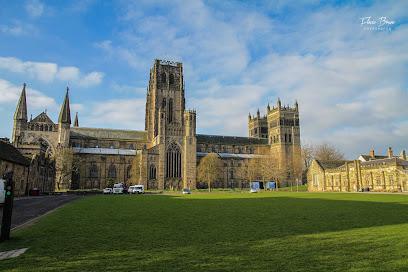
The Alnwick Garden
Explore The Alnwick Garden’s extraordinary blend of modern design, stunning water features, and the world’s most fascinating Poison Garden in Northumberland.
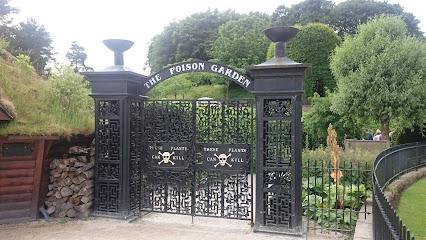
Grainger Market
Discover Newcastle’s historic Grainger Market, a vibrant indoor hub of fresh produce, unique shops, and rich Victorian heritage since 1835.
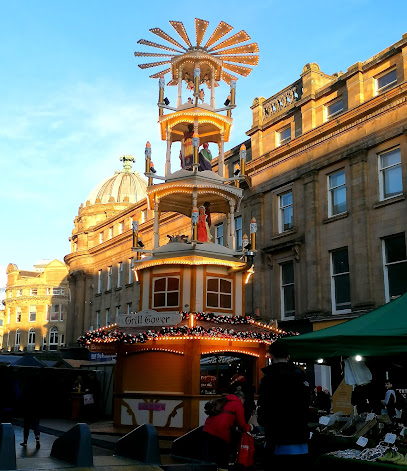
Angel of the North
A monumental steel angel soaring over Gateshead, symbolizing strength, transition, and the spirit of the North East.
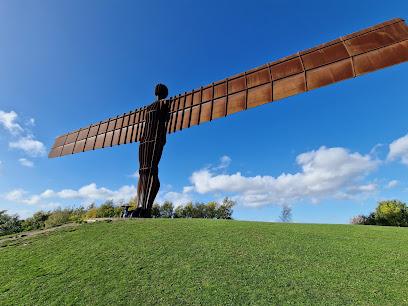
Gateshead Millennium Bridge
A graceful tilting bridge spanning the Tyne, linking culture and city with iconic elegance and stunning river views.
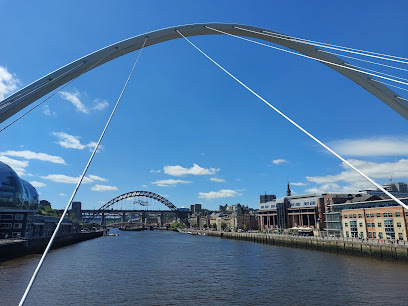
Theatre Royal
A historic Grade I listed theatre in Newcastle’s cultural heart, blending rich heritage with world-class performances and elegant Edwardian design.
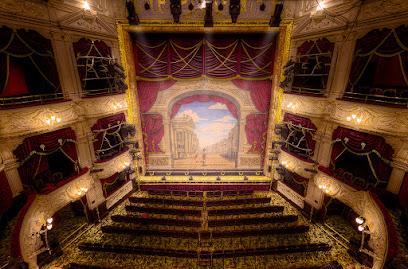
Vindolanda
Explore Vindolanda, a uniquely preserved Roman fort near Hadrian’s Wall, famed for its ancient writing tablets and rich archaeological treasures.
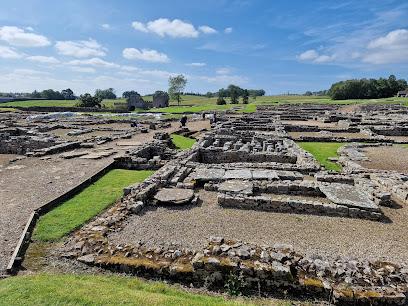
Fenwick Newcastle
Discover luxury fashion, iconic festive displays, and gourmet dining at Fenwick Newcastle on vibrant Northumberland Street.
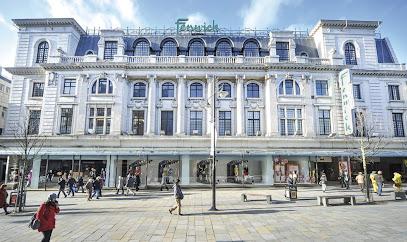
The Gate
A vibrant Newcastle hotspot blending shopping, dining, cinema, and nightlife all under one roof in the city centre.
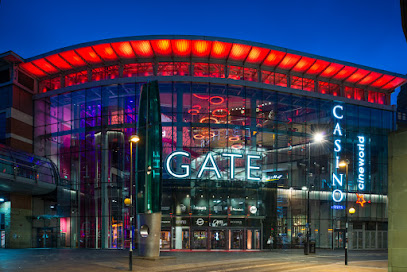
Discovery Museum
Explore Tyneside’s rich heritage and innovation at Newcastle’s interactive Discovery Museum, home to the iconic Turbinia steam ship.
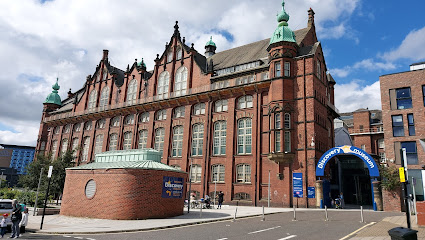
Great North Museum: Hancock
Discover natural wonders, ancient civilizations, and local heritage at Newcastle’s free Great North Museum: Hancock.
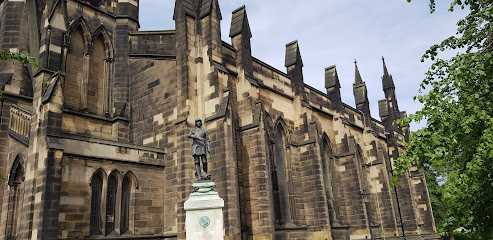
The Rising Sun Countryside Centre
A vast green oasis in North Tyneside blending rich wildlife habitats, historic roots, and family-friendly outdoor activities.
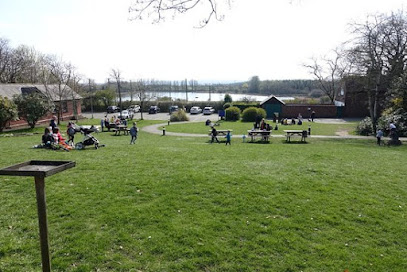
Life Science Centre
Explore hands-on science, immersive planetarium shows, and family-friendly fun at Newcastle’s interactive Life Science Centre.
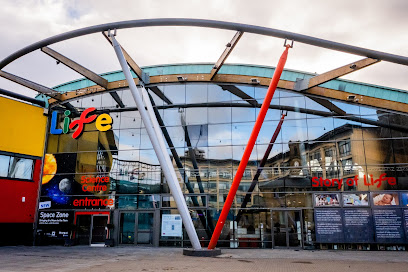
Essential places to dine
Miller & Carter Newcastle
Savor expertly aged British steaks in a stylish, welcoming setting at Miller & Carter Newcastle on Mosley Street.
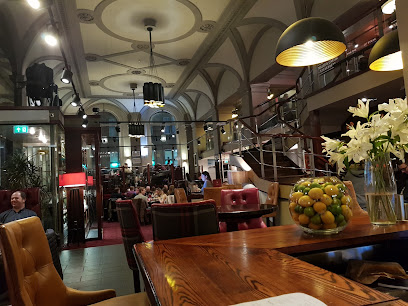
The Botanist Newcastle
Discover a secret garden of botanical cocktails, fresh seasonal dishes, and live music in the heart of Newcastle’s Monument Mall.
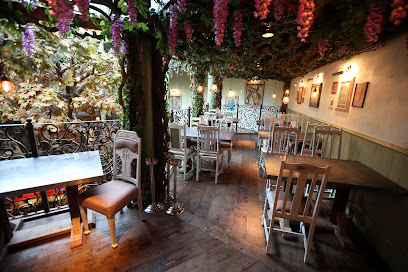
Turtle Bay Newcastle
Experience bold Caribbean flavours, reggae vibes, and 2-for-1 cocktails in the heart of Newcastle’s vibrant city centre.
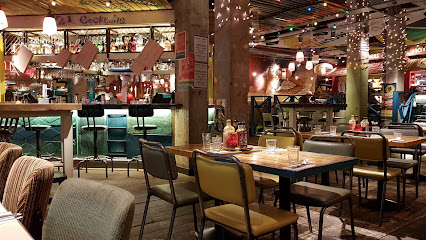
Fat Hippo Newcastle
Indulge in bold, handcrafted burgers and vibrant vibes at Fat Hippo Newcastle, the city centre’s go-to spot for casual, unforgettable dining.
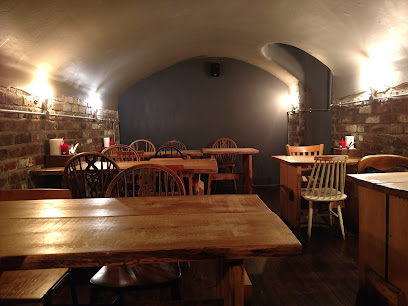
Pleased To Meet You
Stylish bar and restaurant in Newcastle city centre serving seasonal British dishes, craft beers, and creative cocktails until late every day.
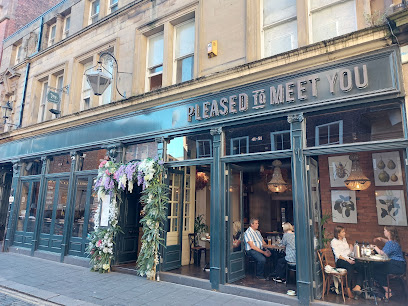
Babucho
Stylish Italian brasserie in Newcastle offering classic dishes with a modern twist in a chic, jazz-infused atmosphere.
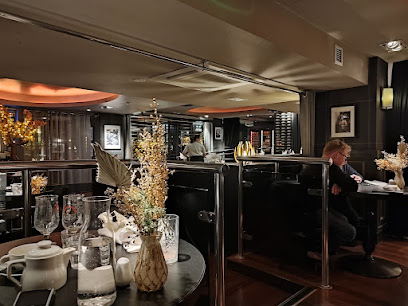
Kafeneon
Experience authentic Greek cuisine and warm Mediterranean hospitality in the vibrant heart of Newcastle’s Bigg Market.
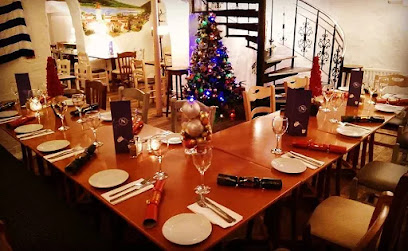
Las Iguanas - Newcastle
Vibrant South American cuisine, legendary bottomless brunch, and killer cocktails in Newcastle's city centre.
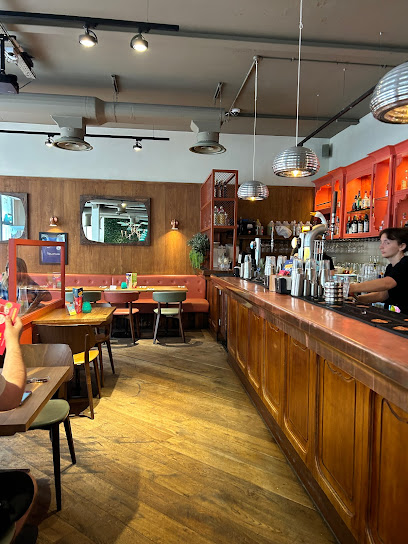
Blackfriars Restaurant
Dine in a 13th-century friary refectory with modern British food, local brews, and a warm, bustling atmosphere in the heart of Newcastle.
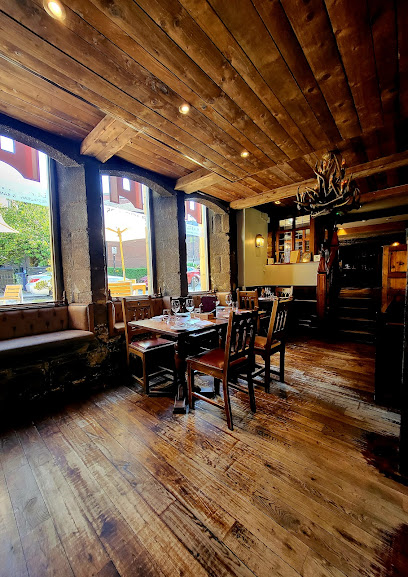
Portofino Restaurant
Experience authentic Italian cuisine in a stunning Victorian setting with warm hospitality and vibrant atmosphere in Newcastle.
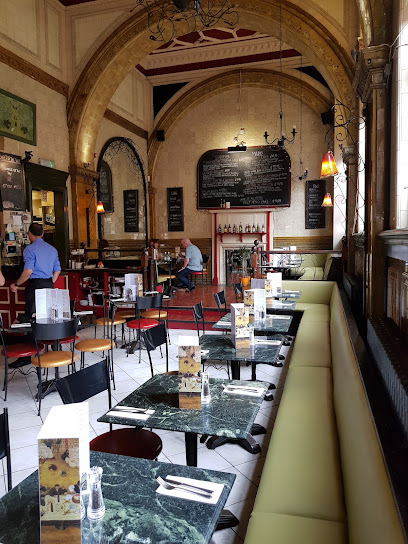
Uno's Trattoria
Discover authentic Italian flavors and generous portions in a lively, welcoming setting at Uno's Trattoria in Newcastle.
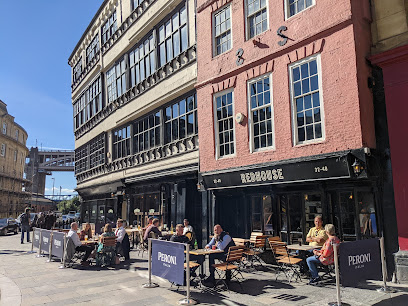
Zaap Thai Street Food Newcastle
Experience the vibrant flavors and lively atmosphere of Thai street food right in the heart of Newcastle’s city center.
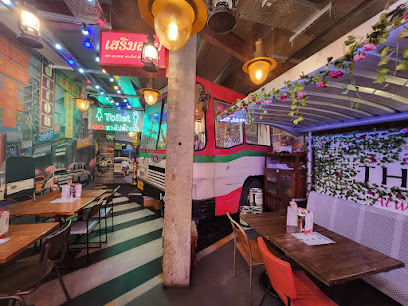
The Broad Chare
A lively gastropub on Newcastle’s Quayside blending traditional British fare with seasonal, locally sourced excellence.
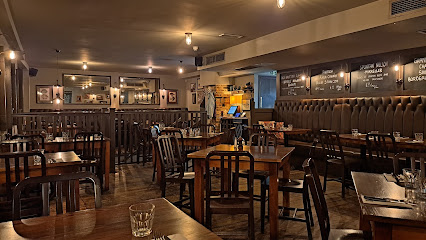
Pani's Cafe
Experience authentic Sardinian and Italian cuisine in the heart of Newcastle at Pani's Cafe, where tradition meets innovation.
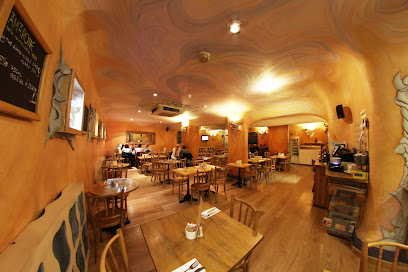
Prima Restaurant
Experience authentic Italian flavors and warm hospitality beneath Newcastle’s historic High Level Bridge at Prima Restaurant.
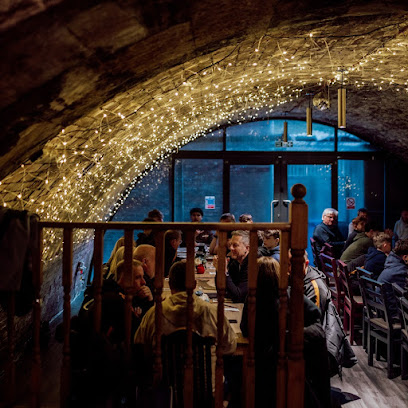
Markets, malls and hidden boutiques
Geordie Gifts
Discover authentic Geordie culture through unique gifts in the heart of Newcastle’s historic Grainger Market.
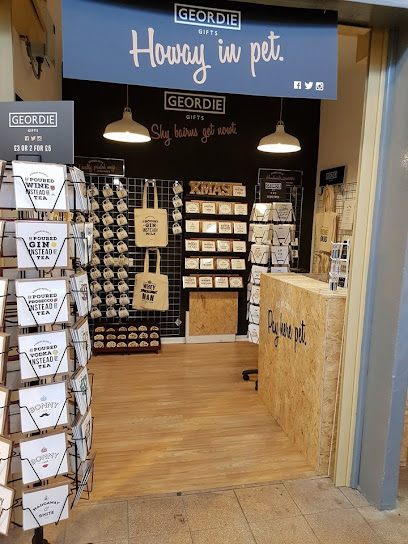
Urban Outfitters
Discover trendy fashion, unique homewares, and a vibrant shopping vibe at Urban Outfitters in Newcastle’s city centre.
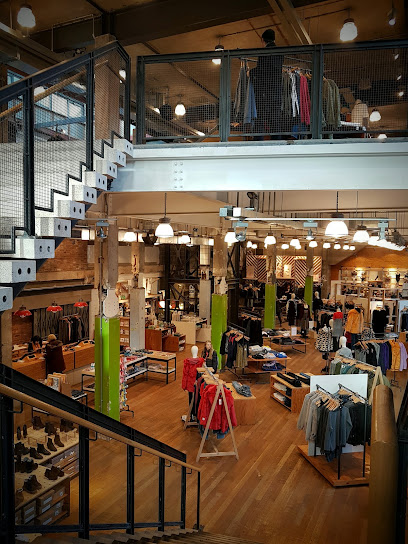
Flea Circus
Discover Newcastle’s vibrant vintage hub blending retro style, handmade crafts, and unique collectibles all under one roof.
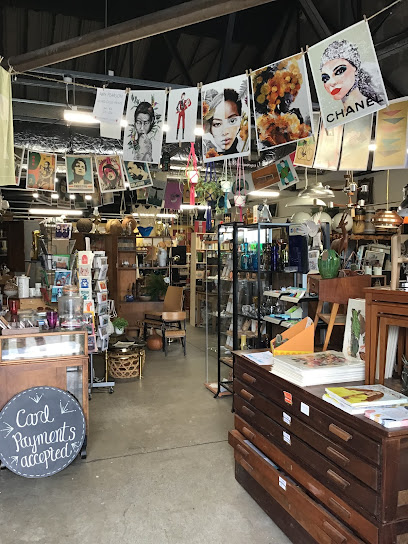
Elula
Discover Newcastle’s gem-filled sanctuary offering crystals, jewellery, and spiritual treasures in a welcoming, vibe-rich boutique setting.
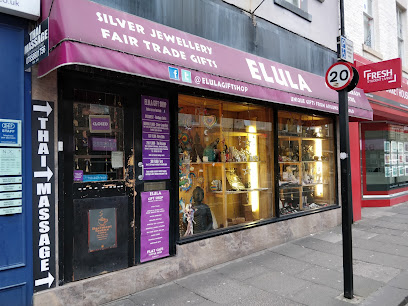
UpSide Down Presents
A vibrant, independent gift shop under Newcastle’s railway arch, packed with Geordie souvenirs, original cards, and quirky presents for every occasion.
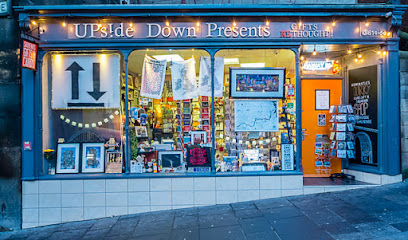
Be More Geek
Explore a treasure trove of pop culture collectibles and geek merchandise in the heart of Newcastle’s Eldon Square shopping centre.
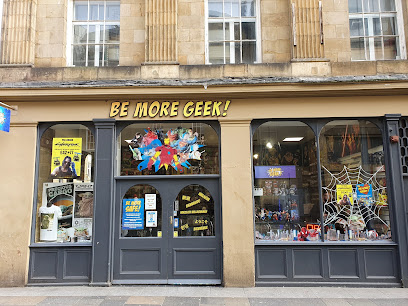
The Works
Affordable books, arts, crafts, and toys in the heart of Newcastle’s bustling Eldon Square Shopping Centre.
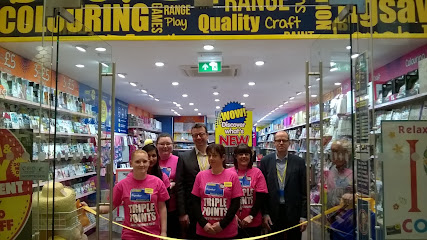
Souvenirs upon Tyne
Discover authentic Geordie treasures in Newcastle’s smallest independent souvenir shop nestled under a historic railway arch.
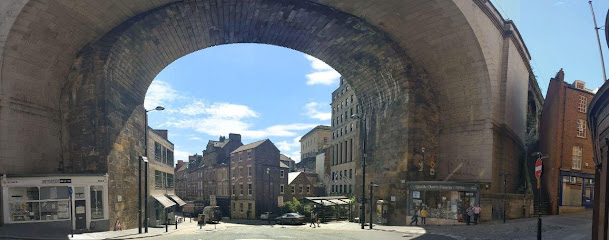
The Vintage Scene Newcastle
Discover timeless vintage fashion treasures at The Vintage Scene Newcastle, a curated boutique for eclectic style lovers in the city center.
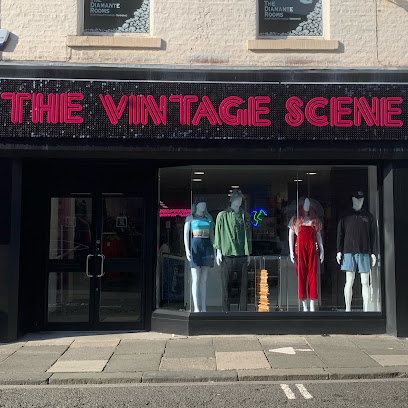
Analog
Discover unique vintage fashion treasures at Analog, a cozy boutique nestled in Newcastle’s historic Grainger Market.
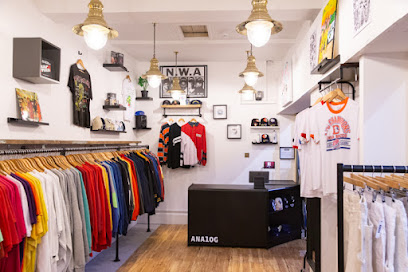
Menkind
A fun-packed gift and gadget shop in Newcastle’s Eldon Square, perfect for quirky presents, pop culture merch, and geeky tech for men and fans of all ages.
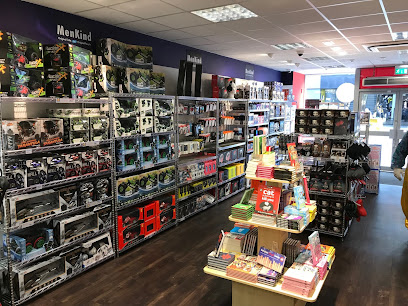
Flip Vintage American Clothing
Newcastle’s premier vintage store since 1978, offering authentic American vintage clothing with quality, character, and style.
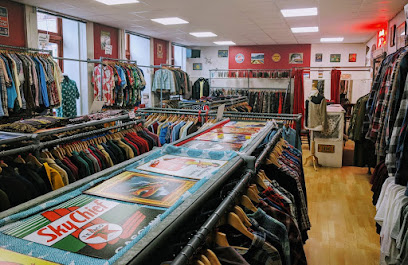
Tian's Gifts
Discover unique handcrafted gifts and charming treasures at Tian's Gifts, nestled in Newcastle’s historic Grainger Market.
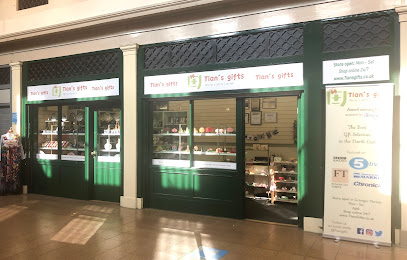
The Geordie Witch
Discover unique local gifts and mystical treasures at The Geordie Witch, a charming and welcoming shop in Newcastle’s Eldon Square.
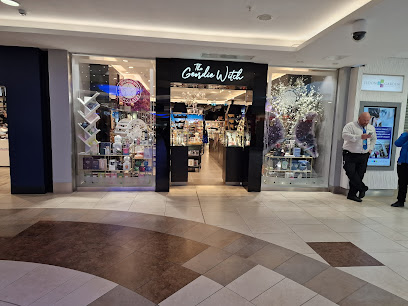
Retro , Vintage Clothing Newcastle.
Discover timeless style and unique vintage finds at Retro Newcastle, your go-to boutique for retro clothing in the heart of the city.
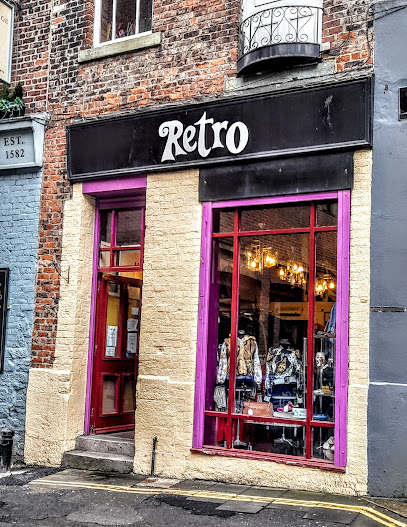
Essential bars & hidden hideouts
Pitcher & Piano Newcastle
A stylish Quayside bar in Newcastle offering scenic river views, vibrant atmosphere, and expertly crafted cocktails.
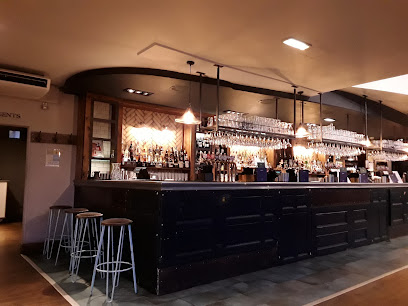
The Botanist Newcastle
Discover Newcastle’s secret garden bar with botanical cocktails, fresh seasonal dishes, live music, and a lush terrace in the heart of Monument Mall.
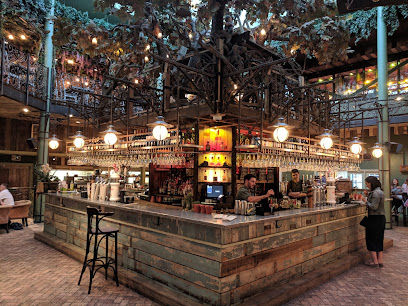
The Tyne Bar
A vibrant Newcastle pub blending craft beers, hearty food, and live music in a unique riverside setting with a legendary beer garden.
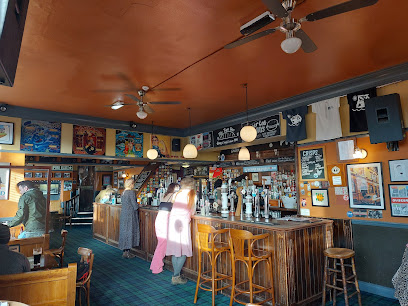
Lady Greys
Cozy Newcastle pub with a stellar real ale selection, handcrafted pizzas, and lively late-night vibes on Shakespeare Street.
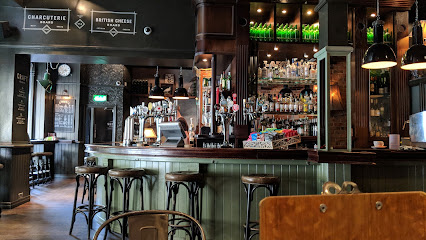
The Alchemist Newcastle
Stylish cocktail bar and restaurant in Newcastle’s Grey's Quarter, famed for theatrical drinks and a vibrant, modern atmosphere.
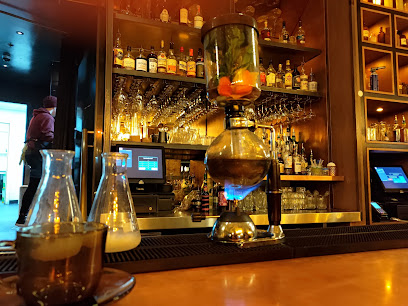
The Broad Chare
A Michelin Bib Gourmand gastropub in Newcastle’s Quayside, blending hearty British fare with an exceptional beer selection in a historic setting.
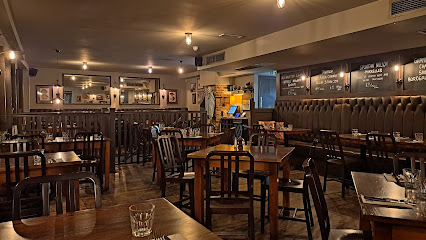
The Mad House
A funky, quirky cocktail bar and brunch hotspot in Newcastle, famed for inventive drinks and unforgettable bottomless brunches.
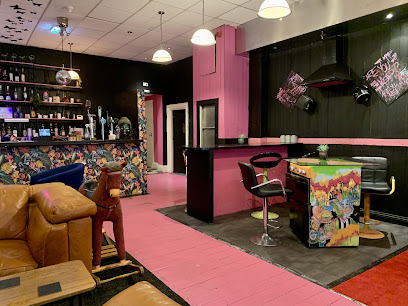
The Dog & Parrot
A vibrant Newcastle pub where live music, punk vibes, and friendly faces create an unforgettable night out.
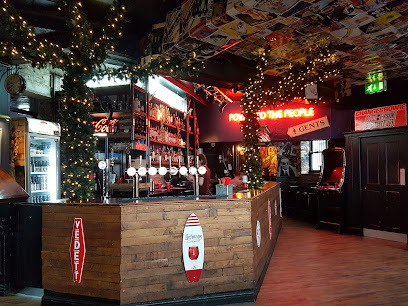
Revolution Newcastle Upon Tyne
Experience vibrant nightlife and handcrafted cocktails in Newcastle’s stunning former bank with soaring ceilings and marble pillars.
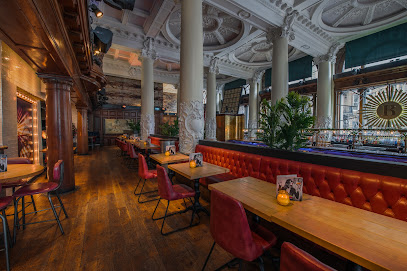
Colonel Porter's Emporium
Step into a 1920s-themed adventure with vintage cocktails, lush botanical gardens, and live music at Newcastle’s Colonel Porter's Emporium.
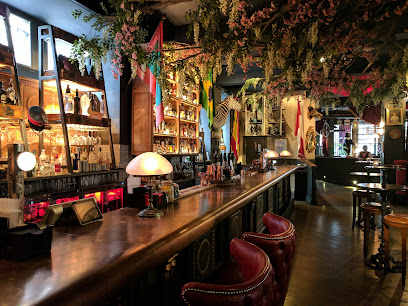
Lola Jeans
Quirky vintage bar and grill in Newcastle city centre, famed for award-winning burgers, crafted cocktails, and vibrant nightlife.
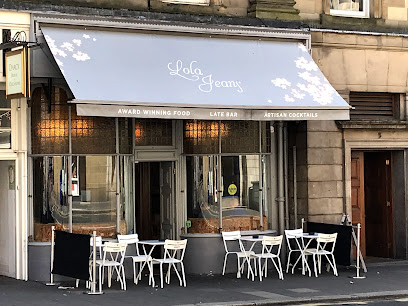
Alvinos Bar
A vibrant Italian-owned bar in Newcastle offering lively nights, imported beers, classic cocktails, and a welcoming atmosphere on Pilgrim Street.
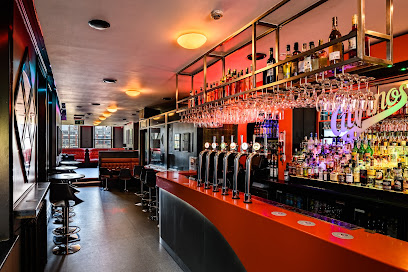
Bar Loco
A vibrant split-level bar in Newcastle offering live gigs, DJ sessions, and a relaxed lounge vibe with a terrace for social nights.
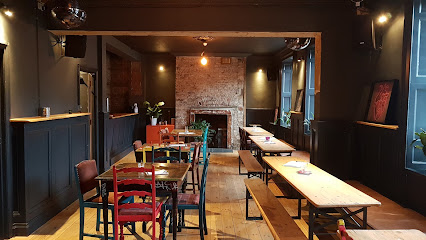
Billy Bootleggers
Experience Newcastle’s vibrant live music scene and welcoming dive bar charm at Billy Bootleggers beneath Byker Bridge.
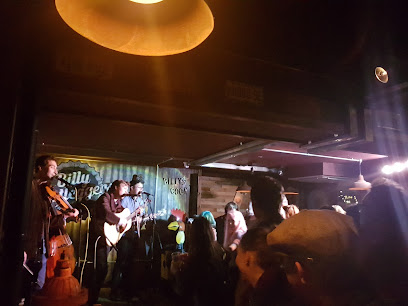
Local Phrases
-
- HelloHoway
[ho-ay] - GoodbyeAa'll see ya
[I'll see ya] - YesAye
[aye] - NoNah
[nah] - Please/You're welcomeHinny
[hin-ee] - Thank youCheers
[cheers] - Excuse me/SorryWey aye, man
[way aye, man] - How are you?How ye deein?
[how yee dee-in] - Fine. And you?Areet. Divvent man?
[ar-eet. divvent man?] - Do you speak English?Div ye speak English?
[div yee speak English?] - I don't understandAa divvent kna
[I divvent na]
- HelloHoway
-
- I'd like to see the menu, pleaseCanny a see the menu, pet?
[canny a see the menu, pet?] - I don't eat meatAa divvent eat meat
[I divvent eat meat] - Cheers!Cheers!
[cheers] - I would like to pay, pleaseCan a pay, pet?
[can a pay, pet?]
- I'd like to see the menu, pleaseCanny a see the menu, pet?
-
- Help!Help!
[help] - Go away!Gan alang!
[gan alang] - Call the Police!Phone the bizzies!
[phone the bizzies] - Call a doctor!Phone the quack!
[phone the quack] - I'm lostAa'm lost
[I'm lost] - I'm illAa'm poorly
[I'm poorly]
- Help!Help!
-
- I'd like to buy...Aa wad like te buy...
[I wad like te buy...] - I'm just lookingAa'm just havin' a gander
[I'm just havin' a gander] - How much is it?How much div it cost?
[how much div it cost?] - That's too expensiveTha's canny dear, like
[tha's canny dear, like] - Can you lower the price?Can ye gan doon in price?
[can yee gan doon in price?]
- I'd like to buy...Aa wad like te buy...
-
- What time is it?Hooay mannee's it?
[hoo-ay man-ee's it?] - It's one o'clockIt's one o'clock
[It's one o'clock] - Half past (10)Hoff past ten
[hoff past ten] - MorningMornin'
[mornin'] - AfternoonThe neet
[the neet] - EveningNoo
[noo] - YesterdayYesterdee
[yesterdee] - TodayThe day
[the day] - TomorrowMorn
[morn] - 1Wun
[wun] - 2Tee
[tee] - 3Thraa
[thraa] - 4Fower
[fower] - 5Fivvor
[fivvor] - 6Sikks
[sikks] - 7Sevven
[sevven] - 8Ait
[ait] - 9Nee-en
[nee-en] - 10Te-en
[te-en]
- What time is it?Hooay mannee's it?
-
- Where's a/the...?Wheor's the...?
[wheor's the...?] - What's the address?Wheor's the addy?
[wheor's the addy?] - Can you show me (on the map)?Can ye show is (on the map)?
[can yee show is (on the map)?] - When's the next (bus)?Wheor's the next (bus)?
[wheor's the next (bus)?] - A ticket (to ....)A ticket (te ....)
[a ticket (te ....)]
- Where's a/the...?Wheor's the...?
History of Newcastle upon Tyne
-
Newcastle upon Tyne's history stretches back to Roman times when it was known as Pons Aelius. Established around AD 122, it was a key location along Hadrian's Wall, a defensive fortification in the north of Roman Britain. The wall was built to protect against the Picts and other tribes. The remains of this era, including segments of the wall and ancient forts, are still visible and are a testament to the strategic importance of the area.
-
Following the Norman Conquest of England in 1066, William the Conqueror ordered the construction of a 'New Castle' upon the River Tyne in 1080, giving the city its modern name. This stone fortress was built to control the crossing over the Tyne and to protect against Scottish invasions. The castle's keep, which still stands today, offers a glimpse into medieval life and serves as a reminder of the city's origins.
-
In the medieval period, Newcastle became a significant center for trade, particularly in wool. The city's strategic location on the River Tyne allowed it to flourish as a trading hub. The wool trade brought significant wealth to the area, leading to the growth of the town and the establishment of important guilds and markets. The medieval street layout, with its narrow lanes and ancient buildings, can still be explored in the city center.
-
The Industrial Revolution transformed Newcastle into an industrial powerhouse. The city was at the heart of the coal mining industry, with its coal fields providing fuel for factories and homes across the country. The development of the railways further boosted the city's growth, making it a pivotal transport hub. The remnants of this industrial heritage, including old coal mines and railways, are integral to Newcastle's historical narrative.
-
Newcastle upon Tyne played a crucial role in the development of the railway system. The world's first locomotive-powered public railway, the Stockton and Darlington Railway, was established in the northeast, with Newcastle as a key node. This revolutionized transportation and trade, cementing Newcastle's status as an industrial center. The city's Central Station, opened in 1850, remains a significant landmark from this era.
-
In the late 19th and early 20th centuries, Newcastle experienced a cultural renaissance. The city saw the establishment of numerous cultural institutions, including the Theatre Royal and the Laing Art Gallery. This period also witnessed the emergence of notable figures in literature, music, and the arts, further enriching the city's cultural landscape. Today, Newcastle continues to celebrate its artistic heritage through various festivals, exhibitions, and performances.
-
Newcastle upon Tyne was significantly affected by both World Wars. During World War I, the city's industries were vital to the war effort. In World War II, Newcastle endured bombing raids, leading to substantial damage. Post-war reconstruction efforts revitalized the city, leading to modern developments while preserving historical structures. Monuments and memorials across the city honor the contributions and sacrifices made during these tumultuous times.
-
In recent decades, Newcastle has undergone significant revitalization and economic diversification. The decline of traditional industries like coal mining and shipbuilding led to a focus on sectors such as education, digital technology, and tourism. Major redevelopment projects, including the Quayside regeneration and the establishment of cultural venues like the Sage Gateshead and the Baltic Centre for Contemporary Art, have transformed the city into a vibrant, modern metropolis.
Newcastle upon Tyne Essentials
-
Newcastle upon Tyne is well-connected by air, rail, and road. The nearest airport is Newcastle International Airport, located about 6 miles from the city center. It offers regular domestic and international flights. The city's main railway station, Newcastle Central Station, is a major hub with direct trains to London, Edinburgh, and other cities. If you're driving, Newcastle is accessible via the A1(M) motorway. There are also regular bus and coach services from various parts of the UK.
-
Newcastle has an efficient public transportation system, including buses, the Tyne and Wear Metro, and ferries. The Metro connects key areas of Newcastle, Gateshead, and the coast. Buses cover the city and surrounding areas extensively. Taxis and ride-hailing services like Uber are also available. Biking is another option, with numerous bike lanes and rental services. For those preferring to walk, the city center is compact and pedestrian-friendly.
-
The official currency in Newcastle upon Tyne is the British Pound (GBP). Credit and debit cards are widely accepted, including contactless payments. ATMs are plentiful throughout the city. Many businesses also accept mobile payment options like Apple Pay and Google Wallet. However, it's always a good idea to carry some cash for smaller establishments or market stalls.
-
Newcastle upon Tyne is generally a safe city for tourists, but like any city, it's important to stay vigilant. Areas such as the city center, Jesmond, and Quayside are typically safe. However, it's advisable to avoid isolated areas and some parts of the West End after dark. Keep an eye on your belongings in crowded places and be cautious when using ATMs. The local police are approachable and helpful.
-
In case of emergency, dial 999 for police, fire, or medical assistance. For non-urgent medical issues, you can visit the A&E department at the Royal Victoria Infirmary. Pharmacies are widely available for over-the-counter medications. It's recommended to have travel insurance that covers medical emergencies. The local police station is located at Forth Banks, and they are generally very responsive.
-
Fashion: Do dress warmly in winter as Newcastle can get quite cold. Smart casual is acceptable for most restaurants and events. Religion: Do respect religious sites and practices. Public Transport: Do have your ticket ready for inspection on the Metro. Don't eat or drink on the Metro. Greetings: Do greet people with a friendly 'hello' or 'hi'. Eating & Drinking: Do try the local delicacies like stottie cakes and Newcastle Brown Ale. Don't skip tipping in restaurants; 10-15% is standard.
-
To experience Newcastle like a local, visit the Grainger Market for fresh produce and unique finds. Take a stroll along the Quayside, especially on a Sunday when the market is on. Enjoy a night out in the Ouseburn Valley, known for its vibrant arts scene and independent pubs. Don't miss a match at St James' Park if you're a football fan. Lastly, explore the city's rich history by visiting the Discovery Museum and the Great North Museum: Hancock.
Trending Landmark in Newcastle upon Tyne
-
Tyne Bridge
-
Newcastle Cathedral
-
The Tower Cafe Ltd
-
Grey's Monument
-
St. Mary's Cathedral
-
Denton Hall Turret - Hadrian's Wall
-
Little Buildings
-
All Saints Church
-
The Black Gate
-
St Andrew's Church, Newcastle upon Tyne
-
The High Level Bridge
-
Old Library Building
-
Morden Tower
-
Newcastle Keep
-
Newcastle and District War Memorial
Nearby Cities to Newcastle upon Tyne
-
Things To Do in Durham
-
Things To Do in York
-
Things To Do in Leeds
-
Things To Do in Edinburgh
-
Things To Do in Manchester
-
Things To Do in Sheffield
-
Things To Do in Dundee
-
Things To Do in Ramsey
-
Things To Do in Stirling
-
Things To Do in Glasgow
-
Things To Do in Liverpool
-
Things To Do in Laxey
-
Things To Do in Onchan
-
Things To Do in Kirk Michael
-
Things To Do in Douglas
















